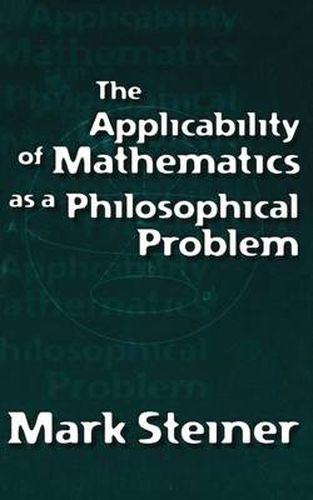Readings Newsletter
Become a Readings Member to make your shopping experience even easier.
Sign in or sign up for free!
You’re not far away from qualifying for FREE standard shipping within Australia
You’ve qualified for FREE standard shipping within Australia
The cart is loading…






This book analyzes the different ways mathematics is applicable in the physical sciences, and presents a startling thesis–the success of mathematical physics appears to assign the human mind a special place in the cosmos.
Mark Steiner distinguishes among the semantic problems that arise from the use of mathematics in logical deduction; the metaphysical problems that arise from the alleged gap between mathematical objects and the physical world; the descriptive problems that arise from the use of mathematics to describe nature; and the epistemological problems that arise from the use of mathematics to discover those very descriptions.
The epistemological problems lead to the thesis about the mind. It is frequently claimed that the universe is indifferent to human goals and values, and therefore, Locke and Peirce, for example, doubted science’s ability to discover the laws governing the humanly unobservable. Steiner argues that, on the contrary, these laws were discovered, using manmade mathematical analogies, resulting in an anthropocentric picture of the universe as user friendly to human cognition–a challenge to the entrenched dogma of naturalism.
$9.00 standard shipping within Australia
FREE standard shipping within Australia for orders over $100.00
Express & International shipping calculated at checkout
This book analyzes the different ways mathematics is applicable in the physical sciences, and presents a startling thesis–the success of mathematical physics appears to assign the human mind a special place in the cosmos.
Mark Steiner distinguishes among the semantic problems that arise from the use of mathematics in logical deduction; the metaphysical problems that arise from the alleged gap between mathematical objects and the physical world; the descriptive problems that arise from the use of mathematics to describe nature; and the epistemological problems that arise from the use of mathematics to discover those very descriptions.
The epistemological problems lead to the thesis about the mind. It is frequently claimed that the universe is indifferent to human goals and values, and therefore, Locke and Peirce, for example, doubted science’s ability to discover the laws governing the humanly unobservable. Steiner argues that, on the contrary, these laws were discovered, using manmade mathematical analogies, resulting in an anthropocentric picture of the universe as user friendly to human cognition–a challenge to the entrenched dogma of naturalism.